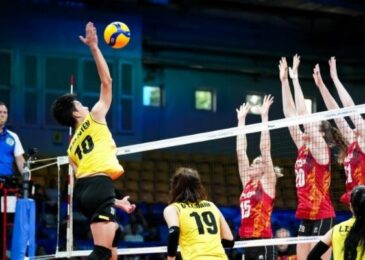The essence of effective learning lies in fundamental principles. As players and coaches, we should always remember the mantra, “The game teaches the game,” as we strive for improvement. Letting younger players experience and learn the sport on the court is crucial, and verbal instruction can never fully replace the value of actual game time.
Experience and feeling the proper contact of a forearm pass trumps a lengthy lecture from a coach. It’s like a picture worth a thousand words, where actions speak louder than verbal guidance. While coaching is essential for player development, the foundation of success often comes from firsthand experience.
Throughout my volleyball journey, I have been fortunate to have received guidance and knowledge from esteemed coaches. From my father at a young age to Rick Olmstead in high school, Al Scates at UCLA, and the U.S. National Team coaches Doug Beal and Marv Dunphy, each has contributed to my growth in the sport. Even today, as I work with Hugh McCutcheon, the U.S. Women’s National Team coach, I continue to learn and evolve.
Xem thêm : Increasing Participation Across the Board
However, as coaches, we must recognize that verbal instruction alone is not enough. Younger players need precious court time to develop their skills. It’s important to let them play more and listen less. This approach not only enhances their enjoyment but also allows them to understand the game at a deeper level.
I find great joy in working with beginners and witnessing their satisfaction when they first gain control over the ball. Recently, I conducted a free clinic at Carmel Beach in California. The setting was idyllic, with the world-famous Pebble Beach Golf Links in the background. The clinic was attended by predominantly younger indoor players with varying levels of experience.
To make the session enjoyable while providing strategic instruction, I organized a modified competition in a rotating king/queen-of-the-court format. This format allows for quick stoppages of play, where I can offer guidance without disrupting the fun. It is important to adjust the team size based on age and skill level. For example, 16-year-olds should feel comfortable playing in 3 versus 3 teams. By playing in smaller groups, players can increase their contacts with the ball, improve their ball control skills, and elevate their performance as a team.
A prime example of willpower in volleyball is consistently covering the hitter. While every player knows they should do it, it requires discipline and focus to execute it consistently. To challenge young players in the new year, I encourage them to focus on covering their hitters. By paying attention and being prepared when their teammates take a swing, they can enhance their self-control not only in this aspect of the game but also in other areas.
FAQs
Q: How can I improve my ball control skills?
Xem thêm : Beach Volleyball: A Growing Global Phenomenon
A: Playing in smaller groups and maximizing your contacts with the ball is a great way to improve ball control skills. Focus on making the ball go where you want it to and understand how this aspect of the game can elevate your team’s overall performance.
Q: How can I consistently cover the hitter?
A: Consistently covering the hitter requires discipline and focus. Pay attention and be ready when your teammates take a swing. Practice this aspect of the game regularly to improve your self-control in other parts of the game as well.
Conclusion
“The game teaches the game” is a fundamental principle that should guide our journey as players and coaches. Emphasizing the importance of on-court experience for younger players, while providing strategic instruction, can lead to their overall development and enjoyment of the sport. Let’s continue to learn, grow, and share our passion for volleyball with the next generation.
For more information about Alpinetgheep, visit Alpinetgheep.
Nguồn: https://alpinetgheep.com
Danh mục: Volleyball


